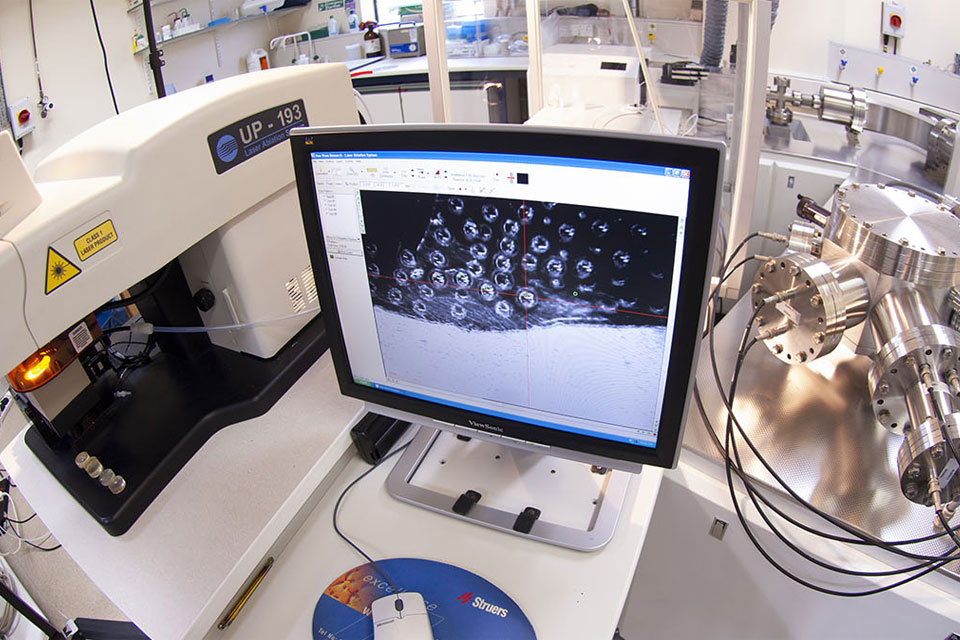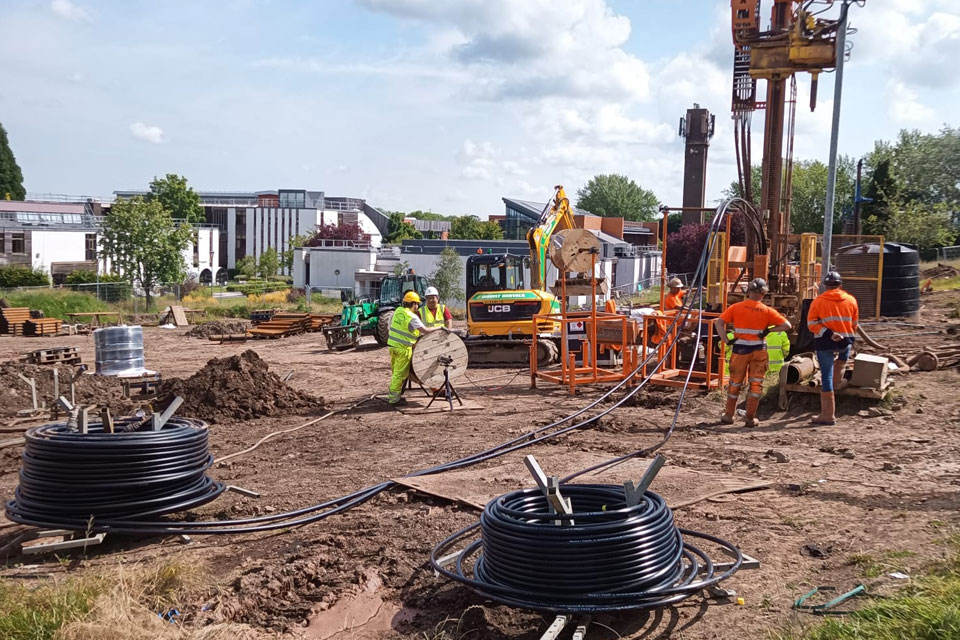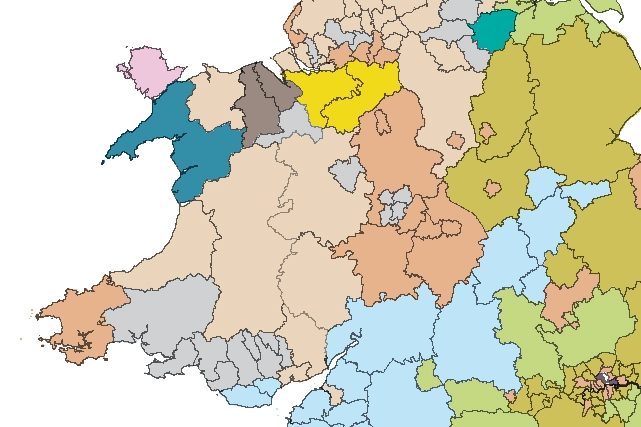Work complete on 1000 solar panels at BGS
More than 1000 energy-saving solar panels have been installed at BGS's headquarters in Keyworth, Nottinghamshire.
07/12/2022 By BGS Press
The new solar car port array in the 3980 m2 car park, which has been installed in the BGS grounds just off Nicker Hill in Keyworth, was approved by Rushcliffe Borough Council in 2020. It follows additional work approved by Rushcliffe Borough Council to install more than 1751 solar panels on the site’s National Geological Repository, which is home to the largest collection of rock core samples in the UK.
Solar panels are now in place on a 3100 m2 area of the car port’s roof and are set to generate 589 165 kwh of electricity annually, saving an estimated 305 776 kg of carbon each year. They are designed to boost energy efficiency and offset an increase in electrical usage, which is required in the organisation’s transition away from burning fossil fuels. The output generated at the port will be around 469.2 kWp (kilowatts peak) and 100 per cent of the electricity will be used on site. The car port is expected to provide a significant proportion of the energy needs for the site for at least 25 years, significantly reducing carbon dioxide (CO2) emissions.
BGS accessed the Public Sector Decarbonisation Scheme to install its solar car ports. The work forms part of BGS’s new environmental sustainability strategy, which aims to achieve zero carbon by 2040 across three core areas of the organisation: its estates, working practices and business travel.
As a leading research organisation, we know that the work we undertake and how we support it has an impact on the environment. We’re working very hard to understand this impact so that we can minimise our footprint and transition to being a more sustainable organisation.
We’re lucky to have a headquarters based in such a beautiful area of the East Midlands, so we’re very pleased to be installing the most environmentally friendly modern technologies on our sites.
Generating our own electricity via solar energy means that, as an organisation, we’ll be emitting less CO2 into the atmosphere, reducing our carbon footprint and increasing our sustainability credentials.’
Daniel Crow, BGS Estates Manager.
BGS provides independent geoscientific data, information and knowledge to help the UK manage its natural resources and respond to environmental change. Its work contributes to finding sustainable solutions that will help the UK to reduce its carbon footprint and safeguard the planet.
Work has already begun at the Keyworth site to increase the number of trees and shrubs, reduce grass cutting and implement new meadow areas and orchards to encourage wildlife. Further works are planned for the coming months.
We found the Public Sector Decarbonisation Scheme easy and friendly to use and we’re now looking forward to carrying out further exciting works in our energy transition, including ground source heating, thermal property improvement and use of modern controls.
Daniel Crow, BGS Estates Manager.
Relative topics
For media enquiries please contact Hannah Pole, BGS press office:
hapo@bgs.ac.uk | 07565297132
British Geological Survey (BGS)
The British Geological Survey (BGS) is a world-leading applied geoscience research centre that is part of UK Research and Innovation (UKRI) and affiliated to the Natural Environment Research Council (NERC). The BGS works with more than 150 private sector organisations, has close links to 40 universities and sponsors about 100 PhD students each year. Please see www.bgs.ac.uk.
Related news

Call for new members and Chair to join the NERC facilities steering committees
25/02/2026
New members are needed to join the committees over the next four years.

Your views wanted – developing a ‘Geothermal energy subsurface data portfolio’
24/02/2026
BGS is aiming to support the growth of the sector by providing the best-available, location-specific geothermal and ground source heat information as an accessible product or service.

Map of BGS BritPits showing the distribution of worked mineral commodities across the country
18/02/2026
BGS’s data scientists have generated a summary map of the most commonly extracted mineral commodities by local authority area, demonstrating the diverse nature of British mineral resources.

Funding awarded to map the stocks and flows of technology metals in everyday electronic devices
12/02/2026
A new BGS project has been awarded Circular Electricals funding from Material Focus to investigate the use of technology metals in everyday electrical items.

New UK/Chile partnership prioritises sustainable practices around critical raw materials
09/02/2026
BGS and Chile’s Servicio Nacional de Geología y Minería have signed a bilateral scientific partnership to support research into critical raw materials and sustainable practices.

Extensive freshened water confirmed beneath the ocean floor off the coast of New England for the first time
09/02/2026
BGS is part of the international team that has discovered the first detailed evidence of long-suspected, hidden, freshwater aquifers.

Funding secured to help mitigate ground risk in UK construction sector
05/02/2026
The BGS Common Ground project has been awarded new funding to help unlock the value of ground investigation data.

Can sandstones under the North Sea unlock the UK’s carbon storage potential?
02/02/2026
For the UK to reach its ambitious target of storing 170 million tonnes of carbon dioxide per year by 2050, it will need to look beyond the current well-studied geographical areas.

Quaternary UK offshore data digitised for the first time
21/01/2026
The offshore wind industry will be boosted by the digitisation of a dataset showing the Quaternary geology at the seabed and the UK’s shallow subsurface.

Suite of ten new soil reference materials released
02/01/2026
BGS has a longstanding track record of producing high-quality reference materials and has released ten new soil reference materials.

Perth and Kinross tops the UK’s earthquake activity charts for 2025
29/12/2025
Seismologists at BGS have published data on the number of seismic events over the past 12 months with over 300 earthquakes recorded.

BGS awarded funding to support Malaysia’s climate resilience plan
17/12/2025
The project, funded by the Foreign, Commonwealth & Development Office, will focus on minimising economic and social impacts from rainfall-induced landslides.



